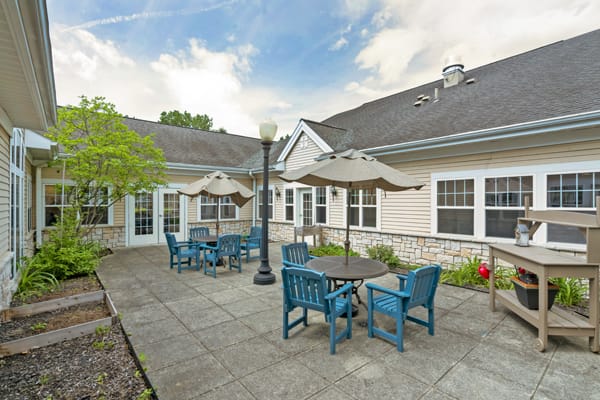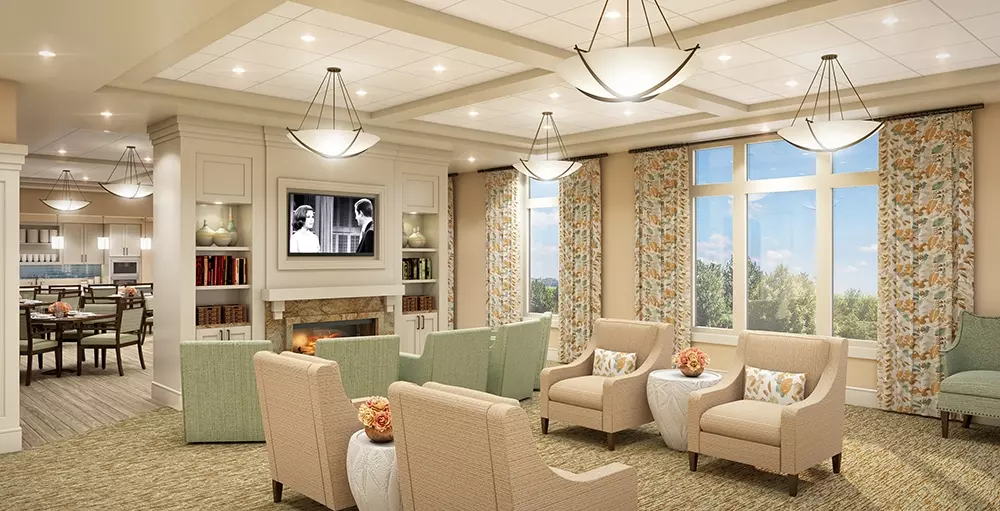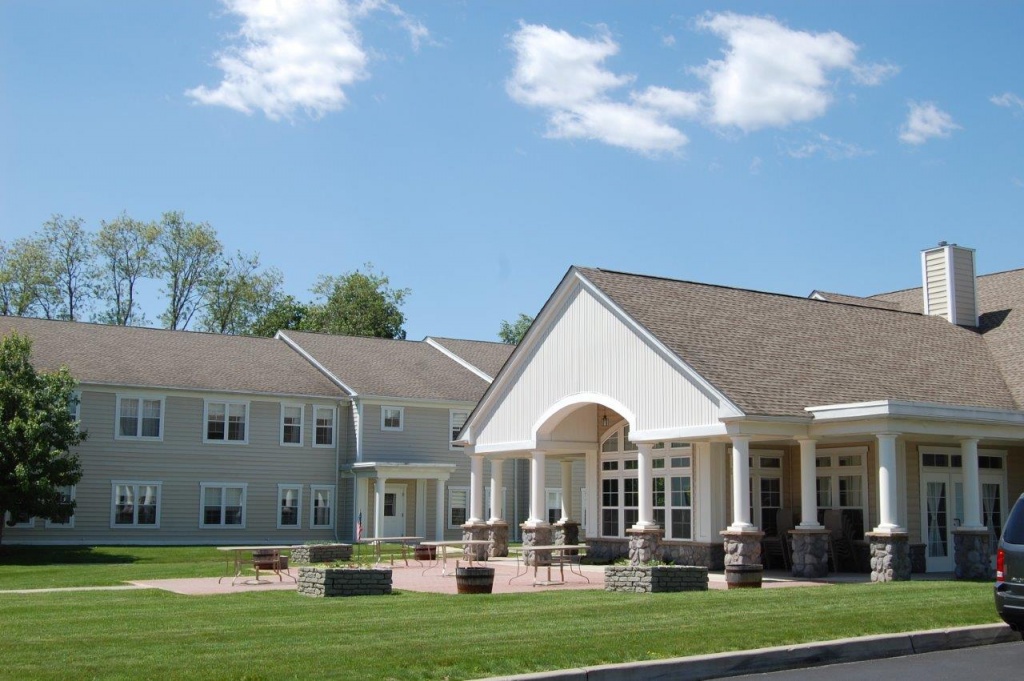
Assisted Living in New York
Costs and Local Resources
Discover everything the Empire State has to offer when you explore assisted living options in New York. From the Atlantic coastal plain of the south to the mountainous northern portion of the state, the geography of New York is as varied as the kinds of cities, suburbs, towns, and rural enclaves in which you can live. Whether you prefer luxury, high-end living amongst the highrises of a world-class city or a quiet, small-town life, there’s something for everyone looking for assisted living services in New York.
Cost of assisted living in New York vs. nearby states

Cost of assisted living in a selection of New York cities
We noticed people seem to be searching for assisted living in these New York cities more frequently than others: Carthage, Rochester, Schenectady, and Troy. We've provided their pricing here.

The cost of assisted living in New York
Seniorly 2021 data shows that the average cost of assisted living in New York is $4,597 per month. The national average monthly cost is $4,057. The average cost of assisted living in New York is above the national average, but when looking at city comparisons, you can see that there is a wide range of costs throughout the state. Keep in mind as you start your senior living search that some areas (particularly those where the cost of living is high) will be more expensive than others. Explore our assisted living listings to start comparing properties, or get in touch with one of our local advisors to get expert advice on what you can afford in the areas in which you’re interested.
Assisted living communities can provide the peace of mind that comes from not worrying about home maintenance, chores, or errands, as well as help with personal care like grooming, eating, and other activities of daily living seniors might have trouble with. However, if your loved one requires nursing care, or has diagnosed Alzheimer's or dementia that has progressed to a certain point, they might need a skilled nursing facility/home health care, or memory care community instead. These types of care providers (and for that matter, in-home care) might cost more in New York than assisted living facilities, but the important thing is that your loved one’s needs are cared for in order to provide them with the best quality of life.
If your loved one currently lives in a retirement community, ask whether it is a Continuing Care Retirement Community: these senior living properties are generally designed for residents to age in place. Seniors can get the different levels of care they need, from independent living to memory care, without having to move to a different community altogether.
Overall cost of living in New York
New York has one of the highest costs of living in the country. Behind only California and Hawaii, New York’s cost of living index is 139.1, where the US national average is 104.63. This is largely due to higher housing costs—especially in the New York City area.
Financial assistance for assisted living in New York
Medicaid options for New York seniors
According to benefits.gov, to be eligible for New York Medicaid, you must be a resident of the state of New York, a U.S. national, citizen, permanent resident, or legal alien, in need of health care/insurance assistance, whose financial situation would be characterized as low income or very low income. You must also be one of the following:
- Pregnant, or
- Be responsible for a child 18 years of age or younger, or
- Blind, or
- Have a disability or a family member in your household with a disability, or
- Be 65 years of age or older.
New York's Medicaid health care program pays for medical care for children and adults with limited income and resources. It is supported by State and Federal funding and designed to help a wide variety of families and individuals who need assistance.
Several New York Medicaid programs provide specific assistance to senior enrollees, including the Health Homes program. Health Homes is not a physical place, but instead a constellation of health support systems provided to those most in need of case management.
Non-Medicaid State assistance programs
There are a few non-Medicaid assistance programs in New York, including the Long Term Care Ombudsman Program, which is an advocate and resource for those who live in assisted living facilities. For those in New York City, there’s the NYC Department of Aging. For more ways to find assisted living help, check the “Free assisted living resources in New York” section below.
More ways to finance assisted living in New York
There are several options available to finance assisted living for yourself or a loved one. Long-term care can be financed several ways:
- Life insurance - Some life insurance policies have a provision for long-term care benefits.
- Long-term care insurance - This type of insurance is intended to cover long-term health care needs by covering costs for assisted living or long-term care communities.
- Pensions, 401K, and IRA - If you have a pension, 401k or an IRA to fall back upon this would be a great benefit in paying for assisted living costs.
- Real Estate - Having a home is a great source of income. When it is time to move into assisted living the sale proceeds from your home can cover the costs.
- Veteran’s benefits - While the VA will not directly cover the costs of assisted living, you can obtain help from the VA under the Veterans Aid & Attendance benefits. The Aid & Attendance benefits helps eligible veterans and their surviving spouses to pay for assistance for assistance of daily living (ADLs) activities. Aid & Attendance benefits are often referred to by other names such as “improved pension,” “VA assisted living benefit,” or “veterans elder care benefits.”
Free assisted living resources in New York
New York residents can explore state resources that can help answer your questions about eligibility for certain types of benefits and how they might apply to assisted living.
Find your local Area Agency on Aging. There are multiple agencies per state, enter your ZIP code or city to find the one closest to you.
The New York State Division of Veterans' Services may be able to help you determine if your loved one is eligible for VA benefits.
Find New York Social Security offices where you can understand your benefits and get answers to your questions about claims.
Assisted living communities by city in New York
| Bronx | Carthage | Cohoes | Endwell | Guilderland |
| Johnstown | Mahopac | New York City | Plainview | Rochester |
| Schenectady | Troy | White Plains |




